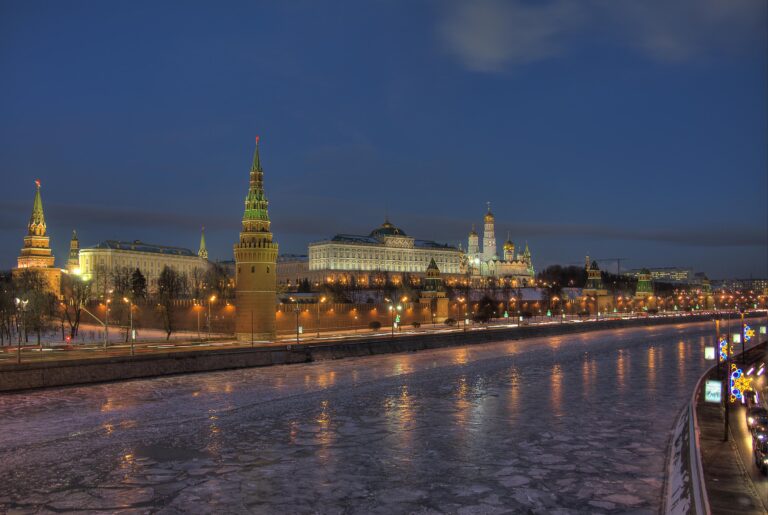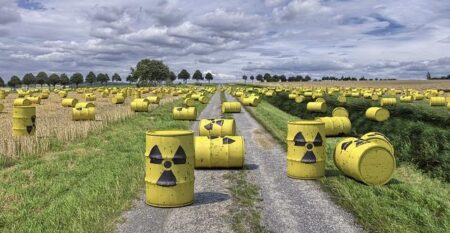Moscow – The Kremlin reiterated its commitment to ending the ongoing conflict in Ukraine, emphasizing that Russia remains interested in pursuing a peaceful resolution. However, diplomatic efforts have stalled amid persistent disagreements and complex geopolitical dynamics, casting uncertainty over the prospects for a negotiated settlement. As fighting continues on the ground, both sides face mounting pressure from the international community to revive talks and achieve lasting peace.
Kremlin Asserts Russia’s Commitment to Ending Conflict in Ukraine
The Kremlin has reiterated its position that Russia remains committed to resolving the conflict in Ukraine through diplomatic means. According to recent statements by senior officials, Moscow emphasizes the importance of dialogue but highlights significant obstacles currently hindering progress. While Moscow expresses readiness to negotiate on key issues, it attributes the persistent stalemate to an unwillingness from Kyiv and its Western allies to engage in meaningful talks or make necessary concessions.
Key factors cited by the Kremlin as challenges in the peace process include:
- Sanctions: Ongoing economic sanctions limiting Russia’s capacity to collaborate effectively.
- Security guarantees: Disputes over the enforcement and scope of ceasefire arrangements.
- Territorial integrity: Differing interpretations of borders and sovereignty complicating negotiations.
| Issue | Russia’s Stance | Major Obstacle |
|---|---|---|
| Sanctions | Must be lifted to foster trust | Western resistance |
| Security | Mutual guarantees required | Disagreement over enforcement |
| Territorial Control | Recognition of current realities | Kyiv’s territorial claims |
Challenges and Obstacles Hindering Progress in the Ukraine Peace Process
Efforts to revive diplomacy have repeatedly faltered amid a complex web of geopolitical and internal challenges. Persistent distrust between the parties remains one of the most significant barriers, exacerbated by ongoing military hostilities and conflicting narratives about the causes and responsibilities for the war. Additionally, deep-seated disagreements over territorial sovereignty and control continue to stall meaningful dialogue. External influences from international actors with competing interests further complicate negotiations, limiting opportunities for impartial mediation and consensus-building.
Key issues complicating progress include:
- Unresolved status of Crimea and eastern regions, fueling political deadlock.
- Security concerns and ceasefire violations, undermining trust.
- Economic sanctions and pressures, impacting negotiation leverage.
- Humanitarian consequences, with displacement and civilian suffering complicating political solutions.
| Obstacle | Impact on Peace Process |
|---|---|
| Distrust between parties | Delays negotiations; stalls ceasefire talks |
| Territorial disputes | Blocks agreement on key terms |
| External influence | Creates geopolitical complications |
| Humanitarian crisis | Increases urgency and complexity |
Expert Recommendations for Revitalizing Diplomatic Talks and Achieving Lasting Peace
Leading analysts emphasize the need for renewed diplomatic commitment grounded in mutual concessions and confidence-building measures. They recommend prioritizing backchannel communications to overcome public posturing and entrenched mistrust. Enhancing third-party mediation efforts, especially through neutral international actors, is critical to bridging divides and instilling impartiality in negotiations. Further, incorporating economic incentives and humanitarian relief packages can create a more conducive environment for dialogue by addressing immediate humanitarian concerns alongside political discussions.
Experts also advocate for establishing a robust verification framework to monitor ceasefire compliance and demilitarization efforts, ensuring accountability on all sides. Below is a simplified overview of core recommendations proposed by peacebuilding specialists:
| Strategy | Objective | Expected Impact |
|---|---|---|
| Backchannel Diplomacy | Reduce public pressure and enable candid discussions | Builds trust and prevents escalation |
| Third-Party Mediation | Impartial facilitation of talks | Bridges political gaps and promotes neutrality |
| Economic & Humanitarian Aid | Alleviate civilian suffering | Creates goodwill to support peace process |
| Verification Mechanisms | Monitor ceasefire and disarmament | Ensures accountability and long-term stability |
In Conclusion
As the conflict in Ukraine continues with devastating consequences, the Kremlin’s stated desire to end the war faces significant obstacles amid stalled peace negotiations. Both sides remain entrenched in their positions, complicating efforts to achieve a lasting resolution. Observers now watch closely to see whether renewed diplomatic engagement can break the deadlock or if the conflict will persist, further destabilizing the region. The coming weeks will be crucial in determining the trajectory of this protracted crisis.




